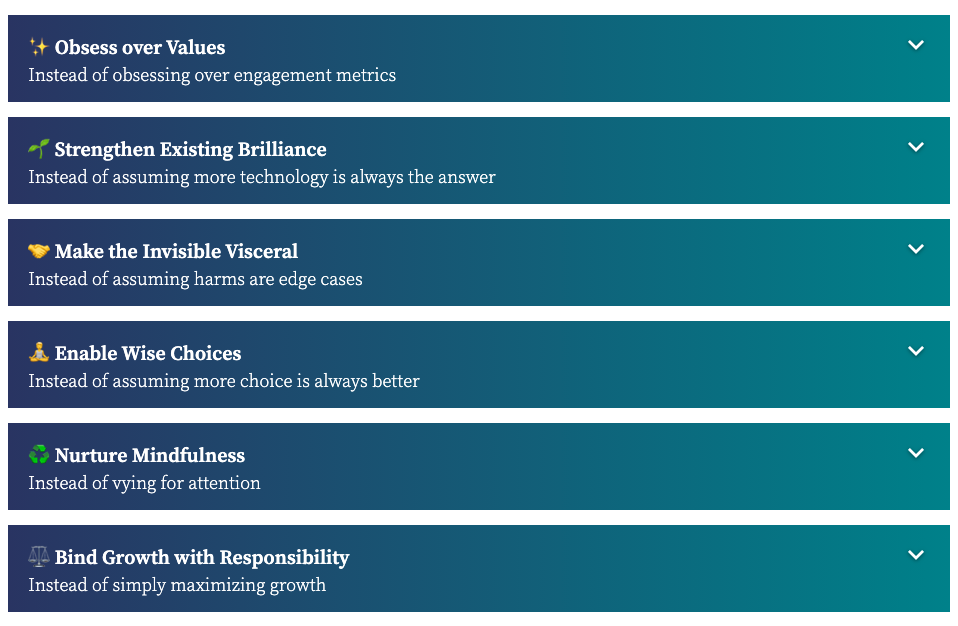Technology continues to raise ethical dilemmas, whether it be Cambridge Analytica and their misuse of Facebook user data, or the increased use of surveillance software for office workers which produce weekly efficiency reports based on real-time screen tracking.
It’s common to worry about your phone ‘listening to you’, but what if companies already have enough of your personal data thanks to improved machine-learning techniques?
As we slowly progress towards a potentially dystopian future, the majority of us are still unwilling to give up any advances in technology, since we’ve all become accustomed to the many benefits of the digital age.
This progression has arguably been exacerbated by the use of technology in the last decade or so, and even more so over the past year with the response to the COVID-19 pandemic keeping increasing numbers of people at home for extended periods of time, staring at screens in some shape or form.
Humane technology is seen as a possible antidote, and is becoming more important than ever as unethical business practices continue to be refined.
What is ‘Humane Technology’?
Technology is a term that we all know and understand to some degree, as it forms a large part of the world around us.
Almost everything man-made is technological, although humane examples tend to focus on digital solutions, rather than a steam engine or a printing press.
Put simply, humane technology aims to create socially-responsible options that don’t exploit the user. It needs to respect their time, their attention, and their personal data.

Consider unethical practices such as targeted advertising, or the endless reams of personal data that are collected by companies that view the user as a product. Humane tech hopes to replace existing ad-driven models with options that aren’t built to be attention-consuming.
Of course, this goes against the business models of many big tech companies such as Facebook and Google, who are incentivized to maximise screen time no matter the cost.
You’d expect there to be some consideration to the ethical aspects of any product or service, but it’s often disregarded in the pursuit of pure profit.
Real-world mainstream examples of humane technology are currently few and far between, while we’re surrounded by unethical services every time a laptop is opened, or when we look at a smartphone solely due to habit.
It’s not like humane examples don’t exist; rather that many are still in their infancy, or are consistently disregarded in favour of traditional apps or services.
An app which aims to limit smartphone/social media usage would be a decent example of humane technology, as would a business in the sector that opts for increased transparency during the decision-making process.
As of now, big tech companies such as Facebook, Amazon, and Alphabet (Google) are mainly interested in upping user engagement numbers, but are their business models compatible with a humane outlook?
If not, is there a way in which alternatives can be developed, as well as being adequately rewarded for the effort? It’s an interesting dilemma, and one that larger companies are bound to face up to in the long run.
Humane tech is arguably best described as a movement, with like-minded individuals hoping to put pressure on tech leaders and policymakers.
Anyone can get involved to support the cause, whether it be writing to a local representative about the issue, trying out some of the humane tech alternatives that are being developed, or working on humane tech of your own.
Discovering Humane Tech Alternatives
There are already a few online resources for discovering the humane tech alternatives that exist or are being developed:
- ethical.net which features ethical options for different categories of software, plus an magazine covering ethical technology.
- switching.software helps you discover some of the best ethical and privacy-conscious alternatives to popular software products.
- The Humane Tech Awesome List features only open source humane tech solutions
- The Humane Tech Community is a popular forum, including participants who are actively involved in building humane software solutions.
- Of course, this website! Whether it’s “mindful” or “humane”, there’s a lot of overlap. We’ll continue to cover this topic as well as others, all focused around encouraging better well-being whilst engaging with tech (such as personal digital habits and meditation apps).
The Center for Humane Technology
The Center for Humane Technology (CHT) was founded in 2013, with a mission to ‘drive a comprehensive shift toward humane technology that supports the collective well-being, democracy and shared information environment’.
Formerly known as ‘Time Well Spent’, they have identified six principles which are key to developing humane technologies in the future:

Tristan Harris is a co-founder and public figurehead, and he has first-hand experience of the phenomena, having worked as a design ethicist at Google.
Their argument is that the endless aggressive optimisation of engagement metrics only works to;
Put the users’ paleolithic, inherently vulnerable brains in charge of determining what is valuable for your product. This approach, combined with the latest machine learning and A/B testing techniques, result in a broad series of harms unleashed at scale, which we call human downgrading.
They’re the team behind ‘The Social Dilemma’, which is a Netflix documentary which offers great insight into how tech designers gained control over the way ‘billions of us think, act, and live our lives’.
They plan to offer free online courses, which should be released in 2021. As of now, it’s still a solid resource if you’d like to learn more about the basics of humane tech.
Human Downgrading
According to Harris, the concept of ‘human downgrading’ is a possible explanation for many of society’s flaws such as;
shortened attention spans, outrage-fueled dialogue, smartphone addiction, vanity, and a polarized electorate
It’s tempting to blame large tech companies for many of today’s issues, while they’re probably the first to disagree with Harris’ arguments.
The truth is probably found somewhere in the middle, which is still worrying for the average user who is glued to a screen for extended periods of time throughout the day.
After all, Harris is speaking from first-hand experience thanks to his time at Google, while it’s easy to find studies that look at the negatives seen from a rise in social media usage.
Social Media’s “Attention Economy”
Social media is often criticised for its invasive hold over users.
The big tech giants have spent significant money and effort ensuring that psychological prompts and curated feeds will keep the user scrolling for the maximum amount of time possible, despite the obvious links to depression.
It’s difficult to find any humane alternatives that aren’t a niche option in the present, aside from switching off entirely.
Open-source decentralised social networks such as Mastodon would be an example, although many have struggled to build their user base compared to heavy hitters in the sector.
The average humane social media alternative has a long way to go before it can begin to match up to the largest commercial services in terms of adoption.
The Importance of Humane Technology
The average consumer is highly susceptible to unethical technologies, which have the power to alter the way we perceive the world around us.
Algorithmic-based unreality is a worrying prospect, but businesses don’t seem to care as long as you continue to use their services for increasingly long periods.
Humane technology is still a fledgling concept, but it’s exceedingly important; especially as machine learning continues to improve.
Understanding the techniques used is one thing, but preventative measures would be better in the long run.
Should tech companies really be allowed to have an impact on their users’ mental health? If they do so knowingly, would they be able to draw a line in the sand somewhere?
The Future of Humane Technology
Ideally, tech companies and services will come to realise the impact they’ve had on the average psyche with the rise of social media, be it via enforced policy changes or the weight of public pressure.
This is likely to come in the form of small steps to begin with, but any move in the right direction is worthwhile. Apple’s stance on privacy is an example of positive change within the sector, even if they’re not actually in the business of the attention economy.
In April 2021, they banned apps and advertisers from collecting data about iPhone users without their explicit consent, which seems like great news at first glance.
After seeing personal data streams rapidly decline, Facebook CEO Mark Zuckerberg noted: “Apple may say they’re doing this to help people, but the moves clearly track with their competitive interests.”
I wouldn’t take anything Zuckerberg says at face value, but he has a point. The decision happened to coincide with an expansion of Apple’s own advertising platform, whether it be by design or happy circumstance.
It will clearly take a massive amount of effort to make the likes of Google and Facebook follow suit, given it would clearly impact their bottom line.
Humane alternatives are being developed right now, which could eventually replace these services, in spite of the sheer size and scale of companies like Alphabet that aim to crush any and all competition that stands before them.
It’s a daunting task, but far from a hopeless endeavour. New technologies do have a chance of supplanting existing big tech leaders, even if it’s likely to be a slow, painful process.
Some would argue that the biggest tech giants are ‘too big to fail’, but they could still be rendered obsolete by viable humane alternatives to their products and services.
Organisations like the Center for Humane Technology (and the related, more participatory Humane Technology Community) also offer a good entry point into the movement, raising awareness as best they can.
If you’re interested in reading more about humane technology, be sure to sign up to our newsletter or follow mindful.technology on your preferred social media platform (see links below).